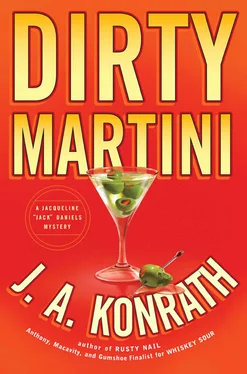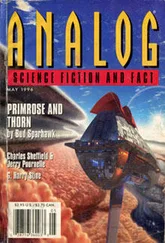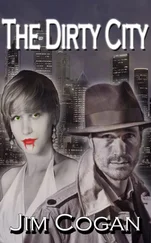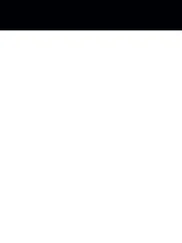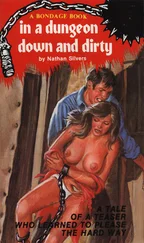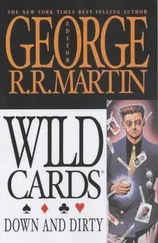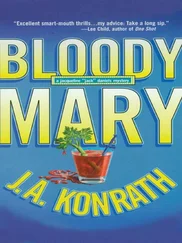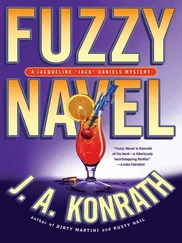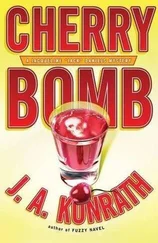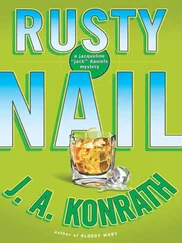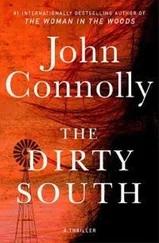I didn’t want to touch anything the Chemist had touched, but I took a chance, assuming he wouldn’t kill me this early in the game. I set down the tracking phone and gently lifted the cardboard cup by the rim. Inside was a cell phone, an older, larger model.
I answered the call.
“I found it.”
A pause. Then, “Walk east. I’ll be watching. If I see anyone approach you, this is over, and people will die. Keep the line free for further instruction. If I try calling, and it’s busy, people will die. Remember the rules.”
And then silence.
I had no choice. I began to walk.
In a way, this was all pretty funny. The Chemist was working damn hard to make sure no one arrested him, when all he had to do was knock on the mayor’s door and His Honor would gladly sign over a personal check. Unfortunately, I had a hard time seeing the humor when I had no backup, no radio, no GPS, and no guns. I assumed my fellow officers would still be able to follow me, but that didn’t mean they would. The city of Chicago had made it abundantly clear that the payoff was more important than my personal safety.
I walked east to Dearborn, went right, then continued east on Washington. The day was hot, muggy, in the upper eighties. The sun hurt my face, still pink from the rough scrubbing the hospital had administered. I moved the sunglasses from my head to my eyes, and kept my pace casual even though my heart rate was set on sprint.
After a block, I had an unhealthy film of sweat covering my body, and a really good feeling I was being followed. A yellow cab, creeping along ten yards behind me, matching my pace. I stopped, pretended to adjust the suitcase handle, and looked at it over my Ray-Bans. The taxi also stopped. I couldn’t see inside very well-the sun glared off the windshield-but the cab was hired and it looked like a single occupant in the backseat.
In truth, I didn’t know if I’d recognize the Chemist even if I was staring right at him. The only thing I remembered from my brief encounter with him in Records was the port-wine stain on his face, and his beard. Both were fake. Just like the eye patch.
If I ran into someone with a single distinctive feature, that might be our man. But if he went without a disguise, he could be anyone. Maybe even someone I’ve already met.
I stopped futzing with the bag and continued east on Washington. I sensed that the cab resumed pursuit, and then actually saw it peripherally as it came up on my right.
“Handoff, from a jogger, soon,” Unibrow said through the open backseat window.
Then the cab accelerated past and turned right on Wabash.
The cell phone rang. I connected after the first ring, wondering if the Chemist was going to go ballistic because he spotted the cab.
“Hello?”
A pause, then, “Go to the Art Institute and wait on the steps. You have four minutes.”
That was about four blocks away, one east and three south. I couldn’t make it in time by walking.
I began to jog.
Normally, a four-block jog wouldn’t even get me winded. But heat, exhaustion, sickness, and a forty-five-pound anchor all conspired to have me wheezing like an asthmatic after the first hundred yards. I kept up the pace, my eyes scanning the crowd ahead, looking for the police jogger who was going to hand off something to me. I hoped it was a cold beer.
The jogger, wily little devil, came up from behind after I turned onto Wabash. He ran past me with ease, not so much as a bump, and I almost didn’t think it was him until I thought to check my blazer pocket.
No beer. But he had left me a walkie-talkie and a wireless earpiece. I switched it on, leaving it at whatever frequency they’d set it at, and stuck the receiver/mike combo on my ear.
“This is Daniels,” I panted. “He told me to go to the Art Institute.”
“This is Reynolds, SRT.” It was Unibrow. “We know. Miller took a guess, and the cell phone the Chemist gave you is Tracey Hotham’s. We’re listening in, and we can ping your location. We’re also tracing his calls. It’s not as easy, because they’re being routed through a PC-one of those computer phone lines. It’s not the same phone he called you from initially. That was one of those pay-by-the-minute cells. We’re not getting anything from it. But we should have his new location in a few minutes.”
I didn’t waste any breath answering. The Art Institute was a block away, on my left, and I only had about a minute to get to it. I was sweating freely now, my shoulder beginning to ache from tugging the suitcase. The sidewalks were packed, and the citizens of Chicago paid me little attention as I ran. A few stepped aside. Most ignored me. None offered to give a struggling lady a hand. I passed the Prudential building, and saw the green lion sculptures in the distance, standing vigil on either side of the steps in front of the Art Institute, and then the phone rang.
“Daniels.”
“Now go to Buckingham Fountain. Stay on foot. You have seven minutes.”
“I need-”
I wanted to say more time , but the connection ended. The fountain was another three blocks north, and maybe three more blocks east. I couldn’t do six blocks in seven minutes, not as tired as I already was.
“Did you get that?” I said into my radio.
“Affirmative. We got a lock on the phone he’s calling from, and it doesn’t make sense.”
“Why not?” I huffed.
“It seems to be coming from Jason Alger’s house.”
The retired cop whose home had been turned into a death trap and whose fingers had been left in the fridge.
“We’re sending a team to check it out.”
“Bad idea. Last time-”
“We’ll be careful. But Alger is uptown. How did he get across town so fast?”
I made it to Jackson, and the light was against me, so I couldn’t cross. It would delay me, but I was grateful for the rest.
“Could have had a remote video camera planted at the Daley Center,” I said. “Or he was watching from a distance. Or maybe he’s forwarding his calls through Alger’s computer somehow.”
“Or maybe he has an accomplice.”
I didn’t like that possibility. Not at all. A guy on the corner next to me gave me a sideways glance, then resumed his cell phone conversation. Suddenly everyone on the street was a potential spy. Or a potential poisoner.
The light changed, and I put it into second gear and charged across the street, almost pulling off my arm when the suitcase wheels caught on the curb. I switched to my left hand, couldn’t find my rhythm, then switched back. I cut left on Van Buren into the cul-de-sac leading to Congress, and huffed and puffed up the bridge over the railroad tracks.
When I reached the apex, my legs, arm, and lungs were pudding. But I could see the Buckingham Fountain ahead, one of Chicago’s most recognizable landmarks, the center jet shooting a hundred and fifty feet into the air. When I got there, I was seriously considering jumping in to cool off. Or to slake my thirst.
Strangely, I was in the same part of Grant Park where my father bought me those three ice creams, years ago. Where were all the damn vendors now that I really needed one?
My phone rang, even though I hadn’t yet crossed Columbus.
“I’m almost there.”
“New destination. Navy Pier. Take Columbus to Grand Avenue on foot. You have fifteen minutes.”
Then he hung up. That little mother…
“Lieutenant, this is Reynolds. We have a team en route to Alger’s house.”
“Why? So you can shake his hand and congratulate him when he gets his money?”
That might have been harsh, considering the casualties they’d suffered, but I was exhausted and in a mood.
“We’re going to watch and wait. The mayor doesn’t want him picked up until we get the all clear. But you can be damn sure we won’t let him out of our sights.”
Читать дальше
